Cane Corso
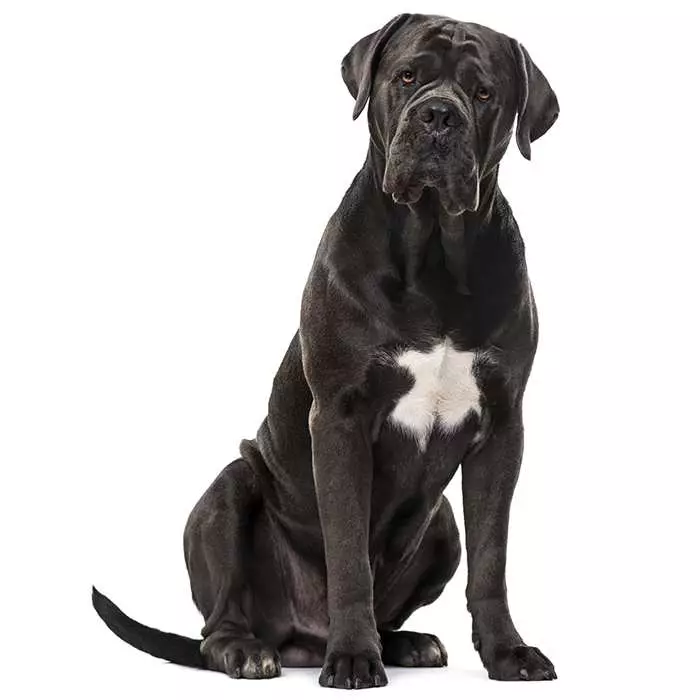

| Recommended for | Active singles & families (not recommended for novice or timid owners) |
| Breed Classification | Working group |
| Other names | Italian Mastiff (plural Cani Corsi) |
| Lifespan | 10-11 years |
| Size | Large |
| Temperament | Well-rounded, independent, affectionate |
| Intelligence | High |
| Tendency to bark | Medium |
| Maintenance Level | High |
| Health Risk | This breed has a higher than average probability of developing health issues during its lifetime, hence the cost to insure is above average. |
Insuring a Cane Corso?
Get our award-winning Nose-to-Tail Cover with up to $30k annual benefit limit, up to 90% of eligible vet bills back, and no sub-limits.
Get a quick quote
Is this breed right for you?
Try our breed selector quiz to find out your best matching breed!
Insuring a Cane Corso?
Get our award-winning Nose-to-Tail Cover with up to $30k annual benefit limit, up to 90% of eligible vet bills back, and no sub-limits.
Get a quick quote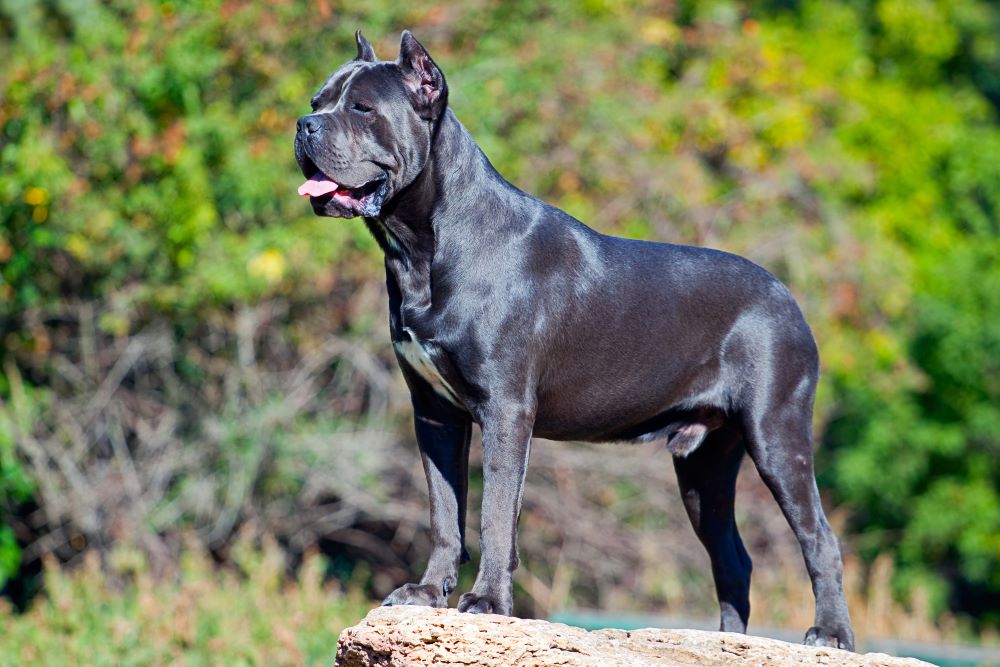
Breed history of Cane Corsos
The history of the Cane Corso dates back to the ancient Romans and the name translates roughly from Latin as ‘bodyguard dog’. At the height of the Roman Empire’s power, the legions that subdued and occupied the Greek islands brought Mollosers back to Italy and bred them to native Italian breeds such as the Neapolitan Mastiff. These dogs were employed as guard dogs and working dogs, as well as war dogs going on on campaigns and fighting dogs used for sport in the arena.
After the fall of the Roman Empire in the 5th century, the Cane Corso continued to be used as a working dog, performing jobs such as wild boar hunting, farming, livestock droving, and most famously, guarding farmsteads and henhouses. The breed remained especially popular in the south of Italy where life was particularly tough and trusted resources were highly valuable.
With the implementation of mechanised farming and the widespread availability of the firearm into the 1800’s and 1900’s, the practical uses for the Cane Corso diminished and the keeping of such a large animal became less economical. By the mid 1900’s the breed was in a perilous situation. In the 1970’s the situation was at its most dire for the Cane Corso until, with the help of a number of Italian dog lovers, a concerted effort was made to revive this favoured breed of their ancestors.
In 1983 the Society Amorati Cane Corso (Society of Cane Corso Lovers) was formed, and by the following decade Cane Corsi were being exhibited in European dog shows. However, the Cane Corso wasn’t recognised on an international level until November 1996 and even now there is not a lot of information for breeders and owners outside of Italy.
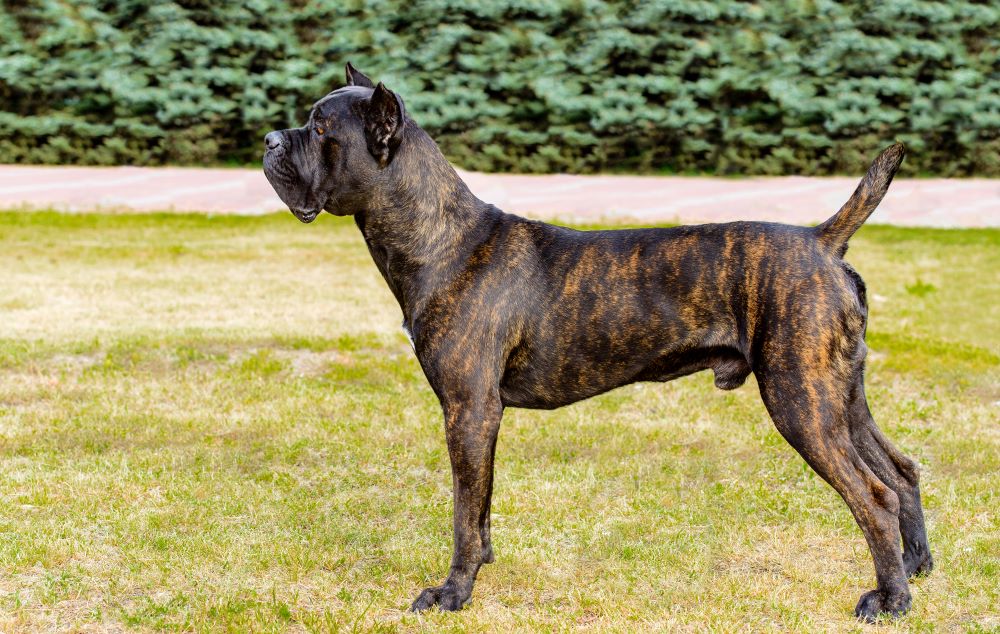
Physical description of Cane Corsos
The Cane Corso is a large-sized dog with a muscular, strong, heavy-set and athletic appearance.
Their imposing size, large head and alert expression give the impression of an intimidating creature, easily keeping potential intruders at bay.
Their impressive facial expressions will tell you exactly what they feel and express their current moods.
Born with floppy ears, ear cropping is frequently performed on the breed during puppyhood.
| Weight range | 45 to 50 kg |
| Height range | 64 to 68 cm |
| Colours | A variety of colours, including black, brindle, grey and black |
| Coat length | Short |
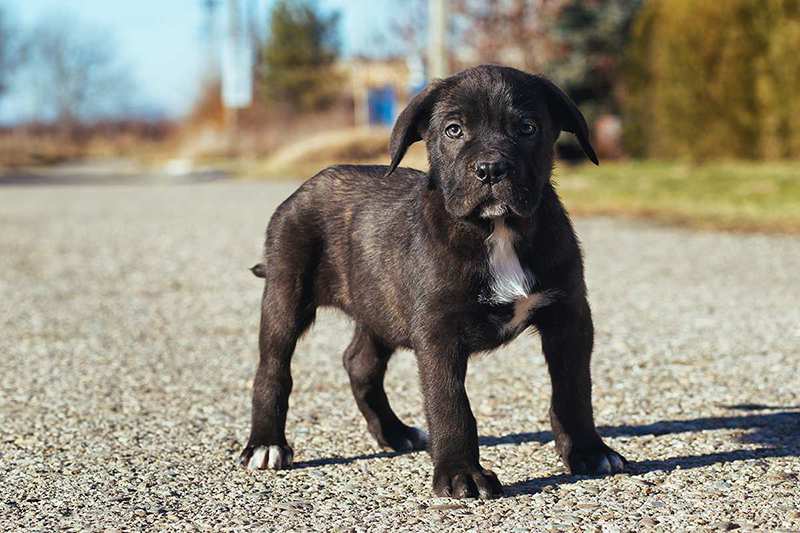
Cane Corso personality and temperament
The Cane Corso has a very good reputation for having an even temperament. They are generally gentle animals that show a great deal of affection, although they are very protective of their owners and can display some aggression when provoked.
A very loyal breed, Cane Corsi are keen to please their humans and very happy to play. Their long history as an all-purpose companion dog has made them extremely fond of human contact.
They are also highly independent, inquisitive, assertive and wilful, which means they can be too much for a novice owner to manage. Some Cane Corsi have a strong prey drive, which needs to be well managed through a capable handler. While Cane Corsi can be dominant and protective, early socialisation and training will help ensure that they grow into well-adjusted, well-behaved adults.
This breed will be happiest when having lots of space to run around and isn’t well-suited to city living.
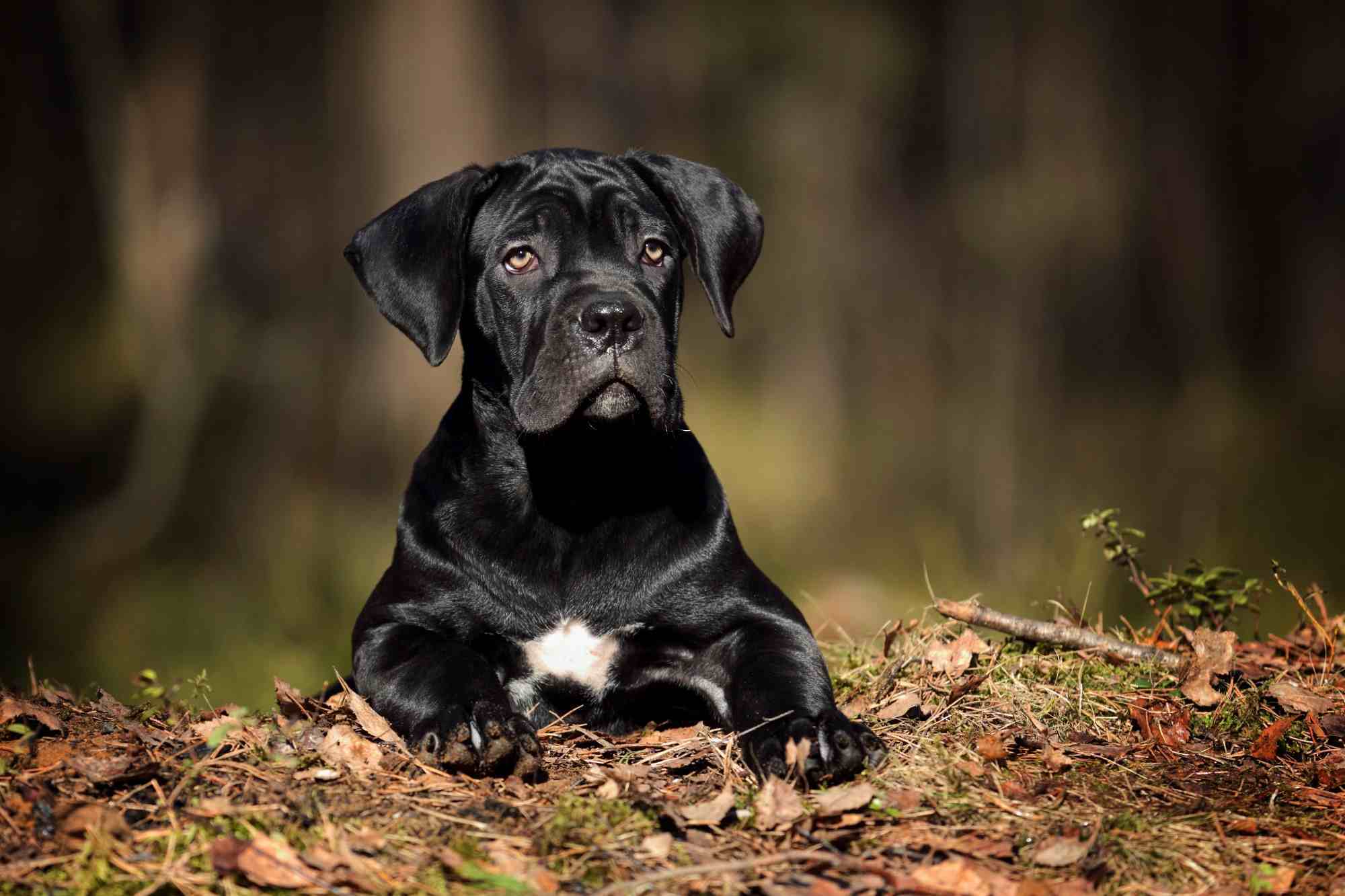
Cane Corsos with kids and other pets
Cane Corsi are generally very patient with young children. However, as powerful, large-sized dogs they can accidently harm small children, so are not the best choice for families with very young kids. Hence they are more suited to families with older kids.
When it comes to other dogs, they may show aggression towards those of the same sex. If they are well-socialised with other dogs from a young age, this is less likely to occur.
As they are territorial dogs with a moderate prey drive, they will need to be well-socialised with cats and other pets from puppyhood in order to co-exist peacefully with them.
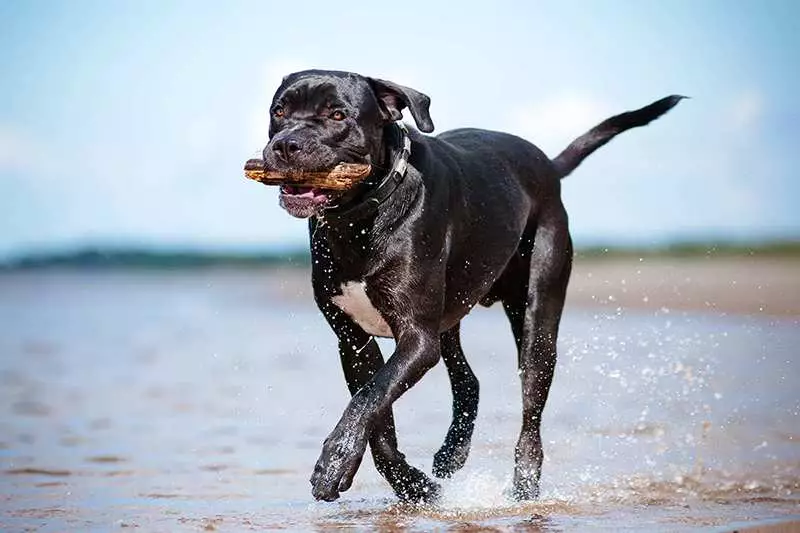
Cane Corso training and exercise
Cane Corsi need serious exercise and they make great companions on long walks, hikes, runs or bicycle rides. Many Cane Corsi compete in dog sports such as agility, obedience, dock diving, protection sport, and tracking events.
The Cane Corso was bred to work and is happiest when given a job to do. If they are not given sufficient exercise and mental stimulation, undesirable behaviour will most likely result.
Early, consistent training from a young age is essential for the Cane Corso. Intelligent and eager to please, they are generally easy to train, and tend to respond to love and rewards far better than to harsh training methods. However, they do need a firm, strong human pack leader to control their stubborn independence.
Early socialisation and puppy training classes are especially recommended for breeds as big and strong as the Cane Corso. Obedience training will keep them from becoming the boss in the household. while socialisation as a puppy is a must curb aggression.
| Energy level | High |
| Exercise requirements | High |
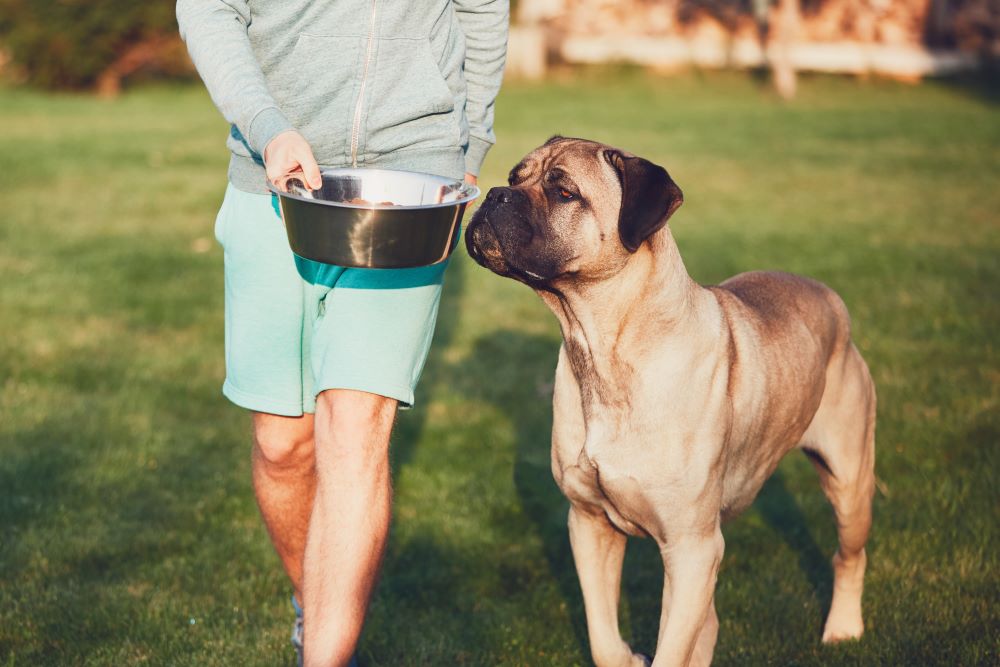
Cane Corso feeding and nutrition
The Cane Corso should do well on a high-quality dog food that is appropriate to the dog’s age (puppy, adult, or senior), size and activity level.
To prevent over-weight or obesity, monitor the Cane Corso’s calorie consumption and weight level regularly. Treats can be an important aid in training, but giving too many can cause weight gain.
Check with your vet if you have any concerns about your dog’s weight or diet.
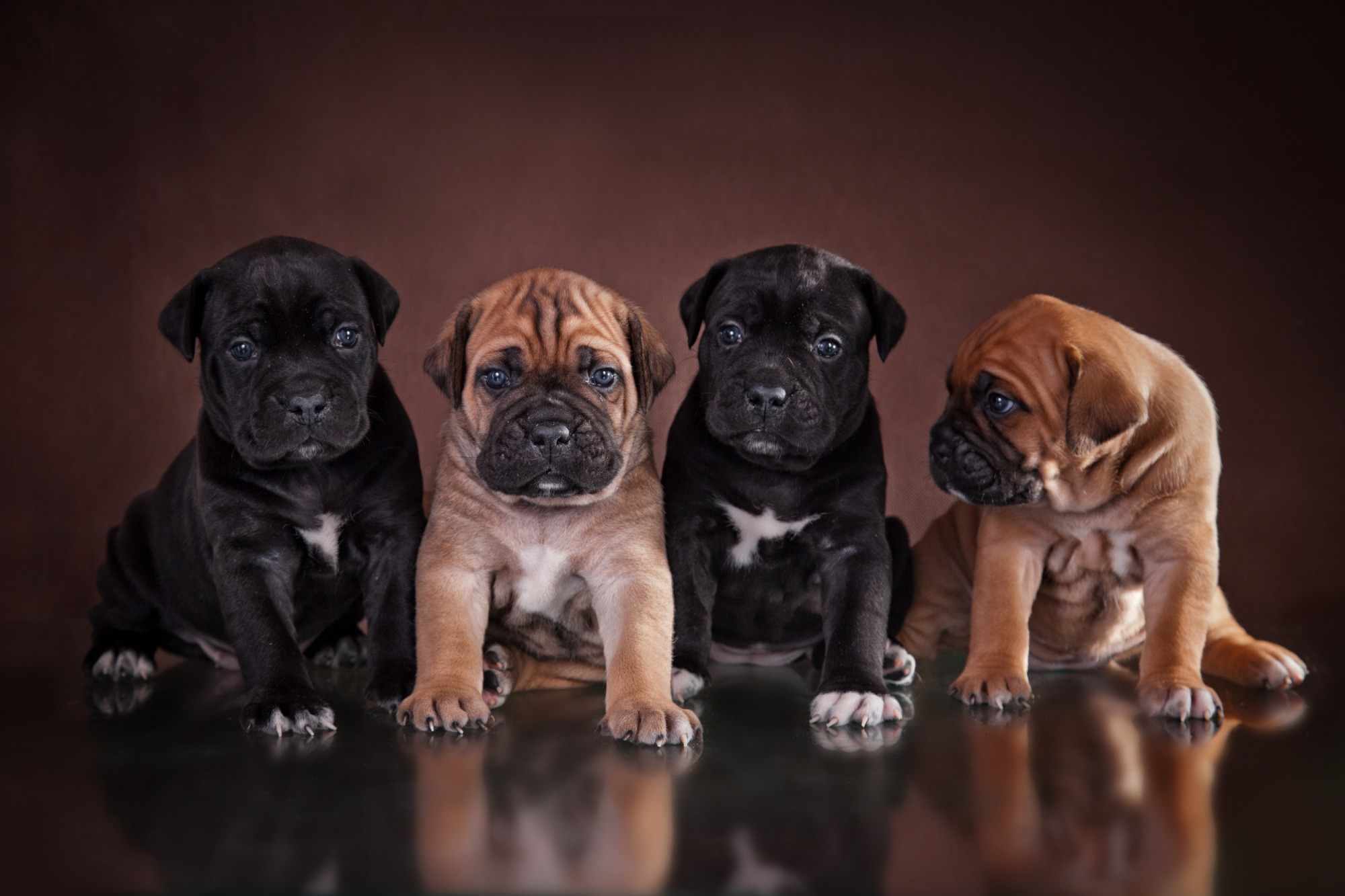
Cane Corso care and grooming
The Cane Corso’s short, double-layered coat sheds lightly year round and more heavily once per year. Weekly brushing (daily during shedding season) with a medium-bristle brush, grooming mitt or glove will remove the dead hair and help keep the coat shining and healthy.
A low maintenance breed, the Cane Corso only requires bathing around every six weeks, unless the dog gets particularly dirty.
Health issues for Cane Corsos
- Hip Dysplasia is a hereditary condition and common in many breeds where the hip doesn’t develop as it should, often resulting in prolonged limping and eventually lameness in later life. The Cane Corso is very susceptible to this condition.

- Epilepsy is a common condition in a number of breeds and is occurs very often in the Cane Corso. If your dog suffers sudden and recurrent seizures, see your veterinarian immediately for an assessment.
- Gastric volvulus or ‘bloat’ is a very serious condition that affects many breeds of dog. The stomach fills with gas and can twist, causing a great deal of pain and, if not treated, death. Symptoms can include lethargy and groaning and retching without vomiting. This condition is common in the Cane Corso and, if symptoms are observed, see your vet for immediate assistance.
Not all conditions are covered by Pet Insurance. For details of Bow Wow Meow Pet Insurance cover, refer to the Product Disclosure Statement.
Free engraved pet ID tag on sign up3
Customer Satisfaction
21 day cooling off
Easy to use Pet Portal


